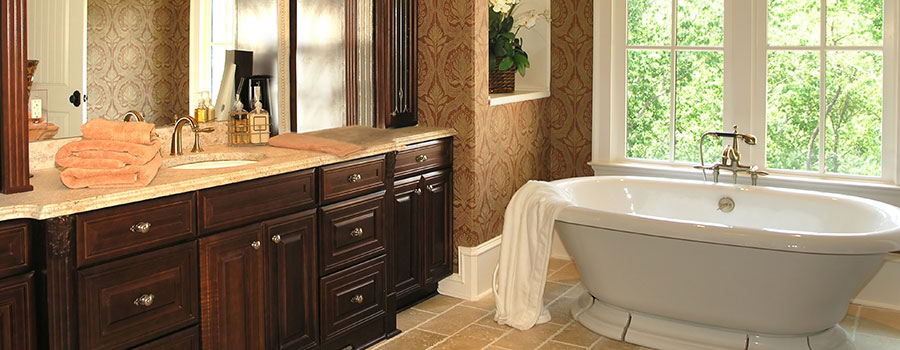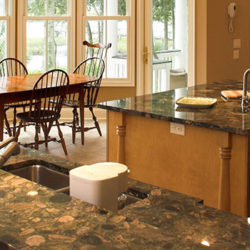You’re probably extremely excited if a home remodel is on the horizon. Everyone loves a new home design, but first, you must be cautious about how you go about it. Some house renovations can take weeks or months to complete, depending on how extensive they are, and in rooms such as the kitchen or bathroom, this schedule may appear unrealistic.
Thankfully, with a little preparation and foresight on your part, you’ll come up with ways to ensure that you have a great time in your remodeling.
According to home addition companies, all you need is mental fortitude and put these tips into place to ensure you have a good experience.
Place your orders as early as possible.
Every remodel will run into unexpected bottlenecks that might cause the project to be delayed. One option for minimizing delays is to order your parts ahead of time.
Make sure you’re prepared for the project by having all your parts selected and ordered before starting your project.
Either having a lead time as to when they’ll arrive or already having them on site makes a world of difference, as you don’t need to worry about the supplies delaying too much.
If you’re rebuilding a kitchen or bathroom and want to upgrade your vanity, hardware, cabinets, and worktops, choosing the fixtures ahead of time will spare you a few hassles during demolition.
This way, you won’t be left with a mess in your home or everyday areas that aren’t used for longer than necessary.
Cannot decide between different finishes or fixtures? Consult experts who will help with project selection. You only need to ensure that the professionals you hire are experienced and know what they are doing.
Consider reconfiguring your space.
The flow of a home may not always match your lifestyle; for example, you may require your kitchen to overlook a garden to watch children or pets playing outside, while you may need to relocate the bedroom to the back of a property to reduce outside noise.
If you intend to change the property’s layout, now is the time.
It is significantly easier to relocate living rooms or bedrooms than kitchens and toilets, which may require extensive plumbing work. If you remove a wall to create an open-plan space, consult a structural engineer to ensure it is not load-bearing.
You also should think about your electrical system; you may need to work to bring it up to code, or you could use the chance to install additional sockets or light switches.
Aim to keep the air as fresh as possible.
During demolition, expect a lot of dust in the air due to sanding and other operations. To avoid ruining your property too much, take precautionary measures to keep dust particles from entering your ducts and returning to the air.
If you’re working in a bedroom with a return duct, tape it off—though it’s not ideal for permanent use—when the demo is happening or sheetrock is being sanded, anything that creates a lot of dust should be blocked off.
Although your contractor will take precautions to keep the remainder of your home dust-free, this step can be pretty beneficial to keeping your air pure.
Remove furniture and other valuables from the house
This may sound obvious, but you must protect your possessions when living at home during a remodel. You should consider removing large pieces of furniture from the work area or covering them in protective wrapping to keep them dust and paint-free.
Most of the time, contractors construct a temporary zipper wall extending to the ceiling from the floor. This will prevent dust from escaping the room.
If you have a new floor, consider installing protective flooring.
If possible, stay out of the construction site.
Do you have children or pets in your home? You’re probably concerned about how safe your home will be during development. As long as you pick the correct contractor, the house is generally safe.
Most of the time, staying in your house during a remodel is safe. The only time it would be unsafe is if asbestos was discovered. If your contractor detects asbestos, they will conduct a test before demolishing the house.
You should agree with the contractor on the safety of you staying in the house. If you have a large house, you can live in areas you aren’t working on, but if the house isn’t that big, you don’t have any other option other than to find an alternative area to live in.
Plan your schedule around the remodel
The result of a brand-new makeover is always thrilling and worthwhile, but getting there is a major challenge. Before beginning a remodel, you should recognize that your daily routine will not return to normal until the job is over.
This can be especially unpleasant for families, but planning will help you stay sane during the disruption.
When it comes to renovations, it’s not only about the remodel; it’s also about scheduling social events. It doesn’t matter if everything is going well; people will still visit your house daily.
Often, the problems aren’t caused by the project itself, but by the disruption to daily life that comes with living in a construction zone.
You should devise a plan that will ensure that you continue with the project and, at the same time, stay in the house.
Work with a reputable contractor.
Living at home during a remodel is not a one-week experience. Projects take time to finish, there is a lot of noise and dust, and power tools will be everywhere.
One way to avoid stress is to hire reliable home addition contractors DC from the outset. Check the licensure board in your state for an active license and read reviews online.
Going to job sites and observing current or finished projects is also great.
No matter what type of renovation you’re doing, you should deal with a contractor with whom you can communicate easily. This means you should find a contractor who is experienced in their work and compatible with you.



